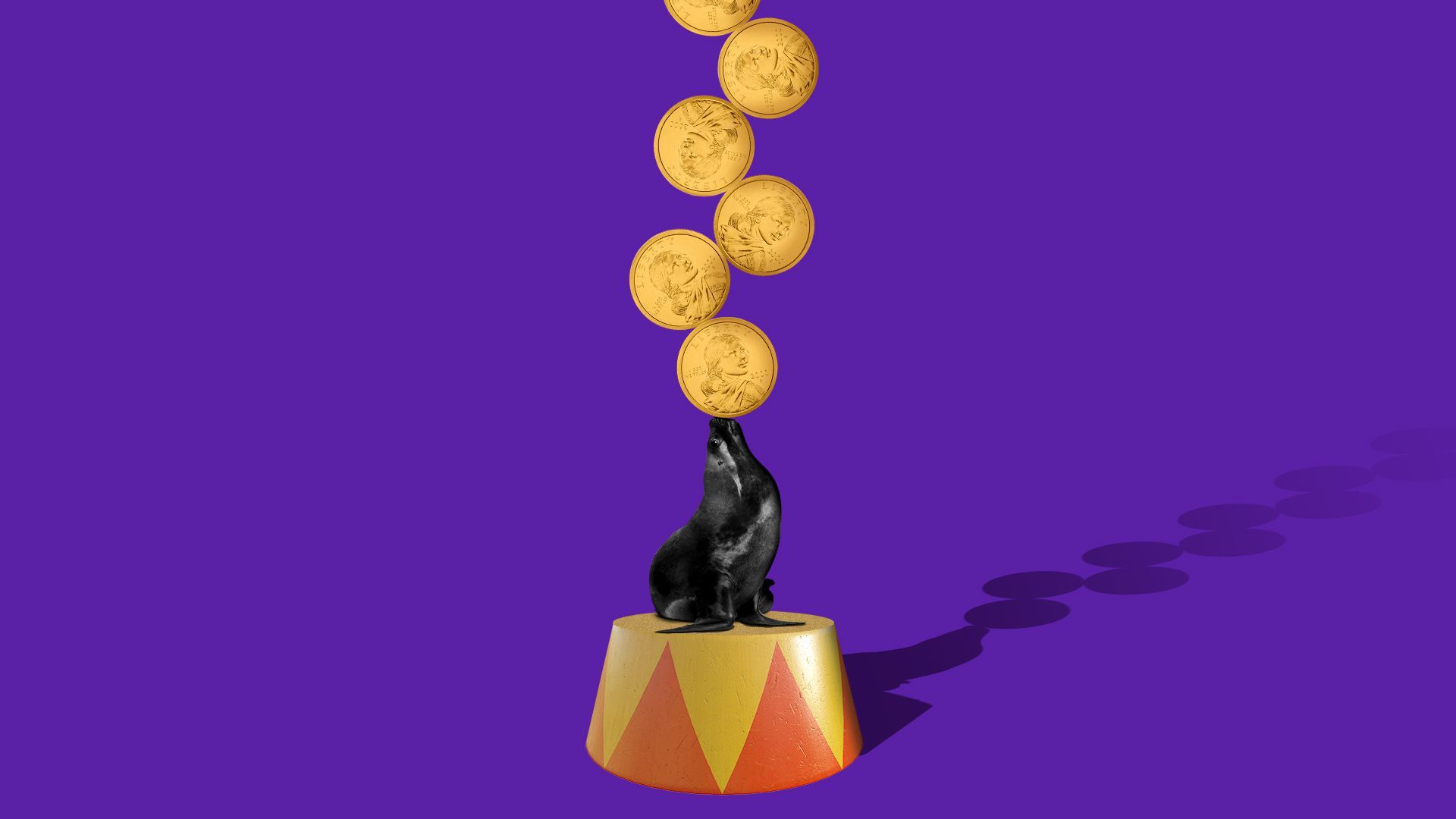Making sense of the GameStop circus
Add Axios as your preferred source to
see more of our stories on Google.

Illustration: Aïda Amer/Axios
It's probably fair to say that Thursday was one of the crazier days in the history of financial news.
What happened: Robinhood, which has become synonymous with retail trading and the parabolic rise of stocks like GameStop and Tesla, shut down the ability of its users to buy (but not to sell) some of the platform's most popular names.
- Charles Schwab, TD Ameritrade (owned by Schwab), Interactive Brokers and E*Trade (owned by Morgan Stanley) also put restrictions on the high flying stocks.
- Those brokerages managed to avoid most of the public's ire.
Where it stands: Robinhood became the top storyline throughout financial media, and even became a trending topic on Twitter as disgruntled users, politicians, washed-up rappers and others accused the company of bowing to hedge fund pressure, turning against its retail clients and conspiring with regulators to stick it to the little guy.
Driving the news: Robinhood said in a note to its customers that they would be able to make "limited buys" of stocks like GameStop, AMC and BlackBerry starting today.
- The note did not specify what those limitations would be or why it had blocked customers from buying them in the first place, except to say that the company has "many financial requirements, including SEC net capital obligations and clearinghouse deposits."
- Robinhood CEO Vlad Tenev similarly avoided providing any specifics in a late-night interview with CNBC in which he admitted the firm drew down credit lines and restricted buying to protect its financial position, but denied the company faced any liquidity problems.
Behind the scenes: The company quietly raised an additional $1 billion from existing investors, the New York Times reported this morning.
On the other side: Schwab sent a tweet at 5:17pm ET asserting that it had not "halted trading in ANY stocks today. We adjusted margin requirements to ensure clients had sufficient assets to pay for stock purchases and restricted certain exotic strategies usually employed by the most advanced traders."
- Interactive Brokers allowed buying to continue but put restrictions on options trading and raised margin requirements on the select group of stocks.
- IB chairman Thomas Peterffy said in an interview with CNBC that the company was "concerned about the ability of the market and the clearing systems, through the onslaught of orders, to continue to provide liquidity. And we are concerned about the financial viability of intermediaries and the clearing houses.”
- E*Trade said it "chose to limit client activity in these names late in the trading day in order to ensure that we could continue to serve our broader client base" and said it expected "to resume normal trading operations tomorrow."
What's next: The incoming chairs of the House Committee on Financial Services, Rep. Maxine Waters, and the Senate Banking Committee, Sen. Sherrod Brown, announced they would be holding hearings on "the current state of the stock market," while providing no details on what the hearings would be about, who would be questioned or what the hearings would be designed to achieve.
Go deeper: The unprecedented stock market craziness, in one chart
